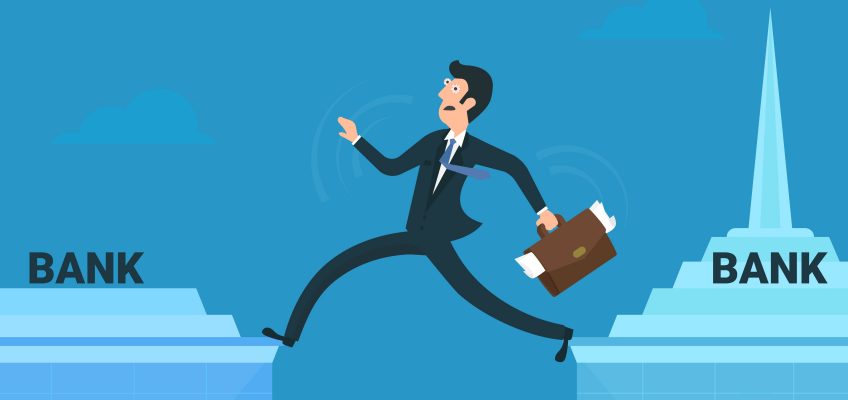Everyone is probably familiar with the unpleasant narratives of those who are lackadaisical about keeping track of their money. For the apathetic who do finally risk evaluating their checking and savings accounts, discovering the fees charged to their account and the interest they are (not) earning is quite a shock. They begin to realize their bank is siphoning off quite a bit of their hard-earned money. So why don’t people switch banks?
The Money Drain
For every one person who does finally take a serious look at their saving and checking accounts and what they are actually receiving in exchange for their money, there are countless others who don’t even bother to tally up all the monthly charges they are incurring for the use of those accounts. They also don’t do any comparison shopping when it comes to interest rates being offered either. Some seem perfectly content with “earning” a near zero rate of interest on their checking account.
This is truly unfortunate as those who do not keep track of where their money is going, not only do they not grow their money, they actually have funds slowly funneled from their various accounts through the form of multiple fees and charges. Their apathy can cost them hundreds of dollars every year as their bank slowly but surely finds a way to take a bite out of almost every dollar they deposit. For these people, they may actually be better off keeping their extra cash underneath a mattress.
The Solution
For those that actually do consider making some changes, but don’t want the hassle of reestablishing all their automatic deposits and payments to a new account, there is at least a partial solution. Almost every bill an individual pays on a monthly basis, from homeowner’s insurance and cable service, to utility charges and garbage collection services, can be paid by setting up automatic payments charged to a credit card. There are multiple advantages to consolidating monthly payments into one single credit card payment per month. Many credit card companies offer points or rewards for every dollar spent by the credit card holder and this can add up to a substantial amount every month or at least every quarter. In addition, it is much less hassle to remember to pay one credit card bill every month rather than multiple individual bills. Of course, taking full advantage of charging bills to credit cards requires discipline, and one must commit themselves to paying off the balance on their card, in full, every month.
Once an individual transfers as many monthly, quarterly and even annual payments to their credit card, they most likely will only have one or two bills such as a mortgage or student loan requiring payment from a checking account. Their automatic deposits most likely consist of payroll deposits from their place of employment. If a person does find a better place to conduct their banking business, switching over a small handful of transactions is definitely manageable.
It Pays to Shop Around
Every individual should consider making an annual commitment to evaluating their current saving and checking accounts and conducting some research to see if there is anything better being offered by the banking community. Just as a person shops for the best deals for their wireless service or automobile insurance, those that spend a little time upfront researching for the best rates and the lowest fees, can save hundreds of dollars per year. The time spent researching typically pays off when one tallies up the annual rewards versus the annual costs, as most will find it is an easy way to put a few hundred more dollars into their own pocket and that is always a good thing.
